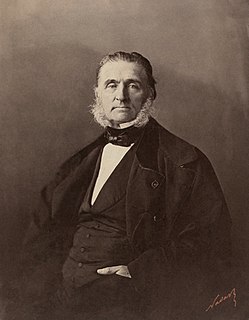A Quote by Charles Sanders Peirce
Every work of science great enough to be well remembered for a few generations affords some exemplification of the defective state of the art of reasoning of the time when it was written; and each chief step in science has been a lesson in logic.
Related Quotes
Among all the liberal arts, the first is logic, and specifically that part of logic which gives initial instruction about words. ... [T]he word "logic" has a broad meaning, and is not restricted exclusively to the science of argumentative reasoning. [It includes] Grammar [which] is "the science of speaking and writing correctly-the starting point of all liberal studies."
The rejection of all abstract formalism. Materialism reminds every science of its real source: the world men transform. No science can, whether in its history or its object, grasp its own origins within itself or constitute itself as a closed world, exhaustively defined by internal rules. Materialism refers every science and every activity to the reality they depend on, even if this dependence is masked by a great many abstract mediations: mathematics as well as logic, aesthetics as well as ethics and politics.
Science and vision are not opposites or even at odds. They need each other. I sometimes hear other startup folks say something along the lines of: 'If entrepreneurship was a science, then anyone could do it.' I'd like to point out that even science is a science, and still very few people can do it, let alone do it well.
It is time to create new social science departments that reflect the breadth and complexity of the problems we face as well as the novelty of 21st-century science. These would include departments of biosocial science, network science, neuroeconomics, behavioral genetics and computational social science.









































